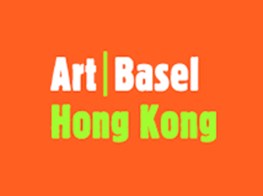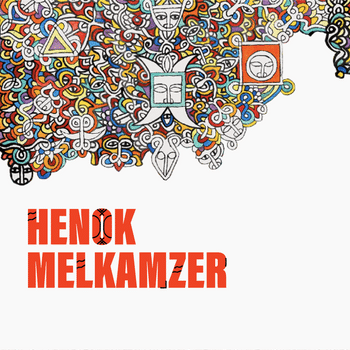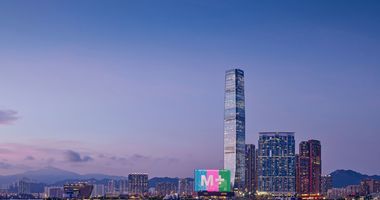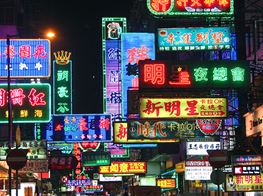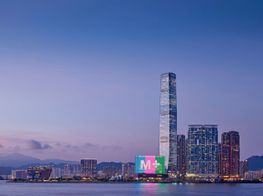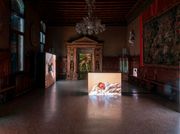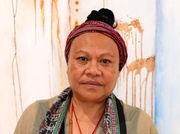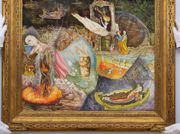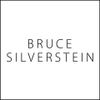Magnus Renfrew
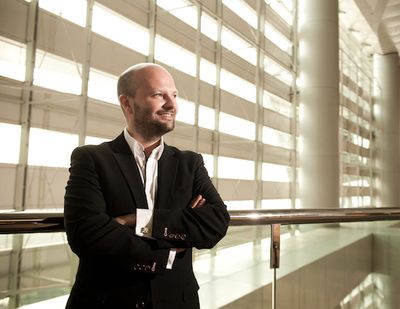
If you are a gallerist aiming to show at one of the leading art fairs in the world, then Magnus Renfrew, Director for Art Basel Asia and one of the four members of the Swiss behemoth's Executive Committee, is the person you want to know, and you want him to know you.
In addition to Renfrew's responsibility for directing the Hong Kong edition of Art Basel, he is responsible for spearheading Art Basel's activities in Asia.
With over a decade's experience in the international art world, Renfrew is consistently and regularly recognised for his contribution by industry media including: ART + AUCTION Magazine in their 'Power Issue' as one of 15 Individuals 'without whom the art world would not spin on its axis' (December 2008), CANS - Chinese Art News as one of the ten most influential people in the art scene in Asia (January 2009), ART REVIEW in its 'Power 100' issue as one of the 100 most influential figures in the international art world (November 2010, November 2012) and by Le Journal des Arts in its 'Les 100 personnalités les plus influentes du monde de l'art' (February 2011). Most recently in 2013, the World Economic Forum honoured Renfrew as a Young Global Leader.
Against the backdrop of the glamour, hype and broadly considered critical and commercial success of Art Basel in Miami Beach, Ocula correspondent Stephanie Bailey, caught up with Renfrew to discuss his views on the 'Basel effect', Hong Kong's cultural status, the art fair phenomena, the successes of Art Basel in Miami Beach, and plans for the 2014 iteration of Art Basel in Hong Kong.
SBThe first thing I wanted to ask relates to your observations on the effect of Art Basel on Miami Beach—can you see the same effect happening in Hong Kong as a result of the fair's presence in that city?
MRI think it already is to a certain extent, certainly from a brand perception of "brand Hong Kong" the fair has already helped to give people the sense that Hong Kong is more than just about finance and high-end retail—that it has the potential to be a cultural and art hub, as well. Since the announcement of Art Basel's acquisition of ArtHK, eleven galleries have opened up in town, and that goes to show the confidence that people have that the fair is going to grow and the art scene is going to grow in Hong Kong.
I think its one part of the cultural ecology, but I don't think it's the whole thing. In Hong Kong now all the different elements of the Hong Kong ecology are beginning to come together. There is a very strong auction market, interesting non-profit organisations that are gaining in international stature, a vibrant art community gaining in self-confidence as time goes on and as people become more aware of their activities. Then you have M+ in West Kowloon, and the cultural district developing there, which will open in 2017, so I think this will be another stage when things will step up again.
You have the whole package really in Hong Kong, and it needs all of these things to come together to take it to its full potential. Hong Kong is really in an exceptional position right now, because of a very unique set of circumstances, that are very difficult to find anywhere else in the world.
SBCan you talk about the specific changes you have noticed since the switch from ArtHK to Art Basel in Hong Kong?
MRIt's easier to persuade galleries to participate now then it was. But it's probably best to start off with what has stayed the same as I think that is really important. One of the shortest conversations we had when getting together to talk about how Art Basel was going to shape things in Hong Kong concerned the make up of the fair.
There was complete agreement that fifty percent of the galleries should be from the Asia Pacific, as it was important for the fair to retain its identity: for the DNA of the fair to remain the same. What has changed dramatically is the infrastructure and the quality of the platform we are able to give to people. We have invested a huge amount of time and resources into evolving the architecture of the fair and I think there has been a dramatic improvement since the launch of the fair in 2007 and the fair launched in 2012.
The second thing is the global reach that Art Basel has. We have one of the best address books and the access to all the top level curators and museum directors - and that has been a great thing.
SBWhat about the trend around art fairs and this argument that mid-level galleries have been essentially priced out of art fairs such as Art Basel, because of the cost that goes into taking part?
MRWell, I think we are in some kind of transitional moment. There has been a huge proliferation of art fairs in every corner of the world over the last five to ten years and ultimately, those that survive and do well are those that serve the needs of the gallery. I think galleries are going to have to be increasingly strategic in terms of what they want to achieve from art fairs and there are different kinds of art fairs.
You have some that are more global and others that are more regionally focused and specialised in terms of a domestic audience. For some galleries it makes sense to target a very particular local or regional audience and for some it makes sense to work in a more global context. And galleries have finite recourses in terms of finance, manpower and energy, and they will have to increasingly make these selective decisions.
SBThe reason I ask is that it is a transitional phase and this proliferation of art fairs has produced a new ecosystem as such, or a new economy.
MROne has to look at it as to whether it is additive or if it is taking something away. I think art fairs are a great way to introduce new collectors to buying art and they are an amazing opportunity for people, who otherwise may not have the opportunity to see art, to actually engage for the first time. So our aspiration is that an art fair has a positive impact for galleries not only within the timeline of the fairs themselves, but throughout the rest of the year.
This helps introduce galleries to new collectors who will then go to the galleries throughout the year thus helping galleries establish these relationships for the long term. The world is increasingly event-driven and people are increasingly time-poor so art fairs allow people to see a lot of work in one go. It certainly serves a function but we are by no means looking to replace the experience of people seeing exhibitions or visiting exhibitions. We are here to support the galleries.
SBWe have spoken about Hong Kong and your observations on that cultural scene and the way it is coming together as such; have you seen a change in Miami as a result of Art Basel in Miami Beach?
MRI am delighted to see that the focus this year seems to be back on the art. Miami, as we know, has a very vibrant social scene. There are lots of parties, and there is nothing wrong with that, you can never complain about there being too many parties. One can choose about going to these parties after all. But I am pleased to see that the focus is back on the art this year and I think we have an exceptional fair. There are very few weak links and it feels very consistent in terms of quality.
We also have the new addition of the Editions sector this year, and that has been very successful, so the quality has been really good. Nova also has a tight selection this year, after having reduced the number of spaces — this has really driven up the quality. I think that every year it is a matter of reflecting on what has gone well, what has not gone so well. I think Collins Park has been a real success this year and I think this is going to be a tradition that is going to just go on and on. I am also constantly amazed by the Film sector, too.
That it is staged at the New World Center is great; it brings film right out into the city and to have people sitting on bean bags to watch film at their leisure is an incredible thing to give the city. Thinking about Hong Kong, this kind of public program is something we would like to develop in the city.
SBWith regards to Hong Kong are there changes you will make as a result of the first edition for the next fair?
MRYes. For the coming edition, we learn every year from what's gone well and what hasn't gone well. I don't have any specifics to announce right now; we'll do this at the start of the next year, but overall we were very satisfied, though of course we feel like there is so much to achieve. We have only really just scratched the surface when it comes to Hong Kong. —[O]

